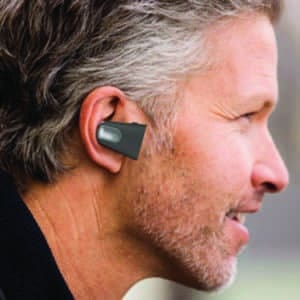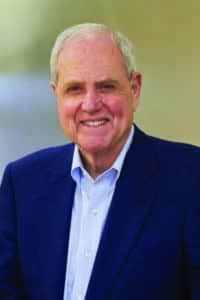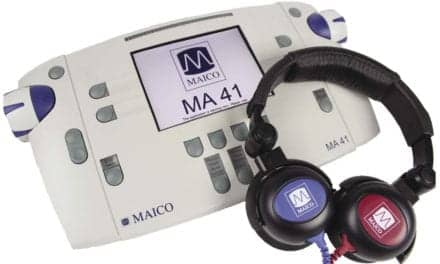Blog Page | August 2014 Hearing Review
The following is from David Kirkwood’s July 1, 2014 blog at his Hearing News Watch column at HearingHealthMatters.org.
By David H. Kirkwood
Soundhawk, Cupertino, Calif, a high-tech start-up company with an impressive pedigree, began taking advance orders in late June on its website (www.soundhawk.com) for a $279 “smart listening system.” According to Soundhawk’s founder, Rodney Perkins, MD, an otologist at Stanford University School of Medicine and founder of the California Ear Institute, the new system “is the culmination of a lifetime of hard work in the hearing sciences to bring a life-changing device to the mass market that has the potential to fundamentally improve the lives of hundreds of millions of people.”
While extravagant assertions from a company’s chairman are nothing new, Perkins’s track record as founder of numerous hearing health companies, including ReSound—which quickly grew into one of the world’s “Big 6” hearing aid companies— gives his words added credence. So does the $11.2 million in venture capital that the Silicon Valley-based company has attracted since its establishment a few years ago.
Although the Soundhawk system is designed to help people hear better, the company emphasizes that it is not a hearing aid and is not intended to be used as a substitute for hearing aids. The distinction is important, in part, because if it were a hearing aid, Soundhawk would have to comply with US Food and Drug Administration (FDA) regulations and the product would have to be dispensed through licensed professionals rather than marketed directly to consumers via the Internet or retail stores, as the company plans.
However, as Michael Kisch, the company’s CEO, pointed out in a June 27 interview with Hearing News Watch, the Soundhawk is different from hearing aids in a number of ways.
For one thing, said Kisch, a former executive at Cisco Systems, “It is intended strictly for situational hearing, say to converse in a noisy restaurant.” Soundhawk anticipates that buyers will use it for only 2 to 4 hours a day, and its battery needs recharging after only about 8 hours of use. That is in contrast with hearing aids, which are generally intended for much greater daily use and have batteries that last for days.
Drew Dundas, PhD, chief scientific officer at Soundhawk, who also spoke to this blog, said, “We are not anti-hearing aid.” He added that there is no reason for his company to have “an adversarial relationship” with audiologists and hearing aid specialists.
Indeed, the former director of audiology at the University of California at San Francisco said that the Soundhawk “is a potential boon” for hearing aid providers. He explained, if hearing professionals recommend it to someone who doesn’t feel his present hearing loss justifies a $4,000 hearing aid, 2 or 3 years down the road if his hearing worsens, the person may remember the professional who told him about Soundhawk.
About the System
While audiologists and dispensers who do fit FDA-regulated hearing aids may reject Soundhawk’s claim that it is not competing for the same market, the new product’s design is very different from that of typical hearing aids.
The system includes the “scoop,” a rather conspicuous earpiece; a wireless microphone; and a free smartphone app. This patented app uses dozens of algorithms to filter, mute, amplify, or otherwise alter sound. The user moves a finger across his smartphone screen to adjust the sound to a level where he can hear what he wants and isn’t distracted by ambient noise.
The scoop uses adaptive audio processing to enhance key sound frequencies while reducing background noise. It connects wirelessly to a smartphone or tablet, allowing the user to talk hands-free and directly access Siri or Google Now by voice to place calls, search for places of interest, get weather updates, etc.
When it is placed near the source of a sound the user wants to hear, the system’s wireless mic delivers clear sound to the scoop in even noisy environments.
The Soundhawk system also comes with a portable charging case that can recharge both the scoop and wireless mic twice before having to be plugged back into a wall outlet.
Although Soundhawk began taking orders on June 24 for its “smart listening system” at an introductory rate of $279, the product will become available later this summer at a price of $299.








